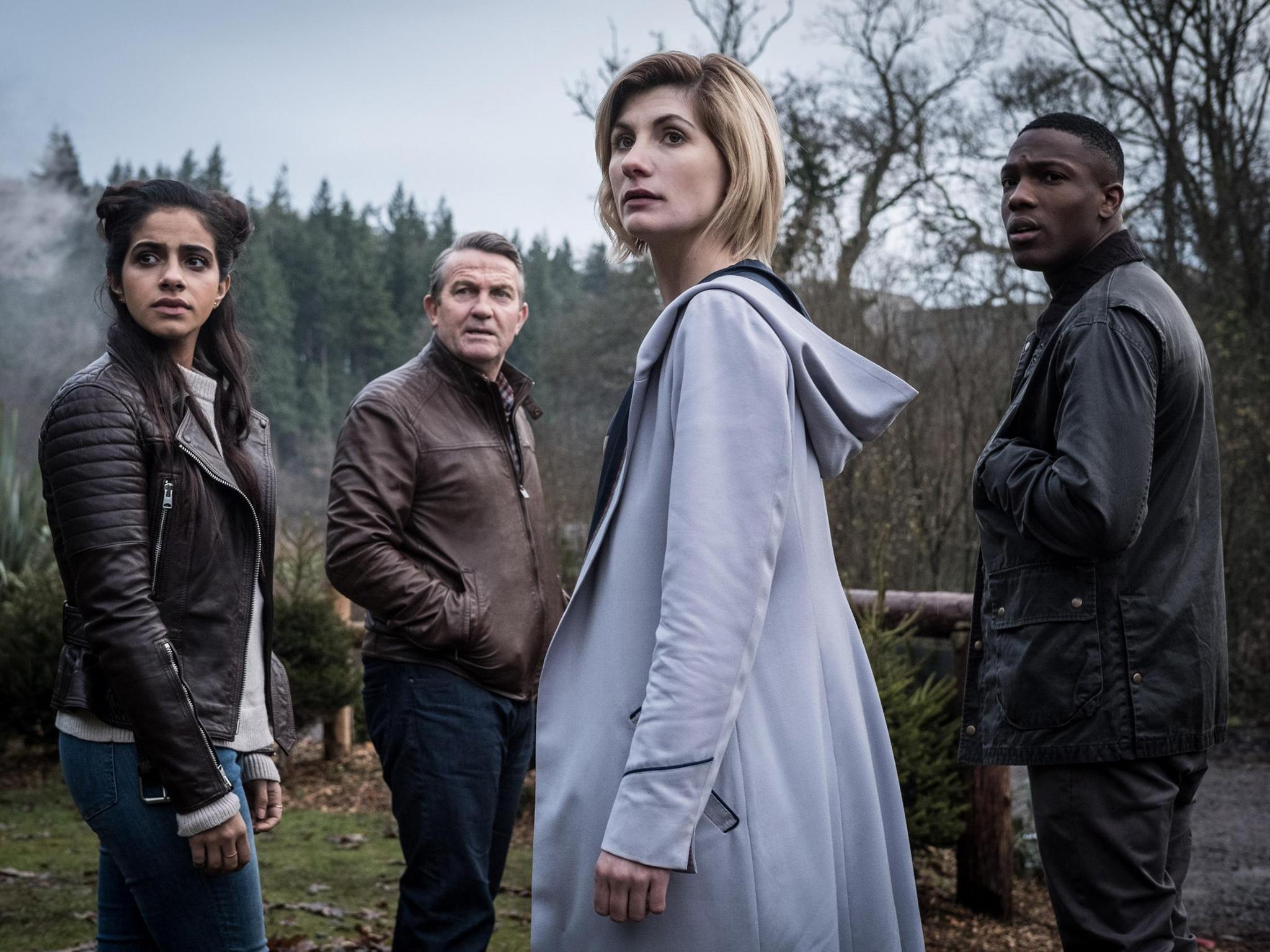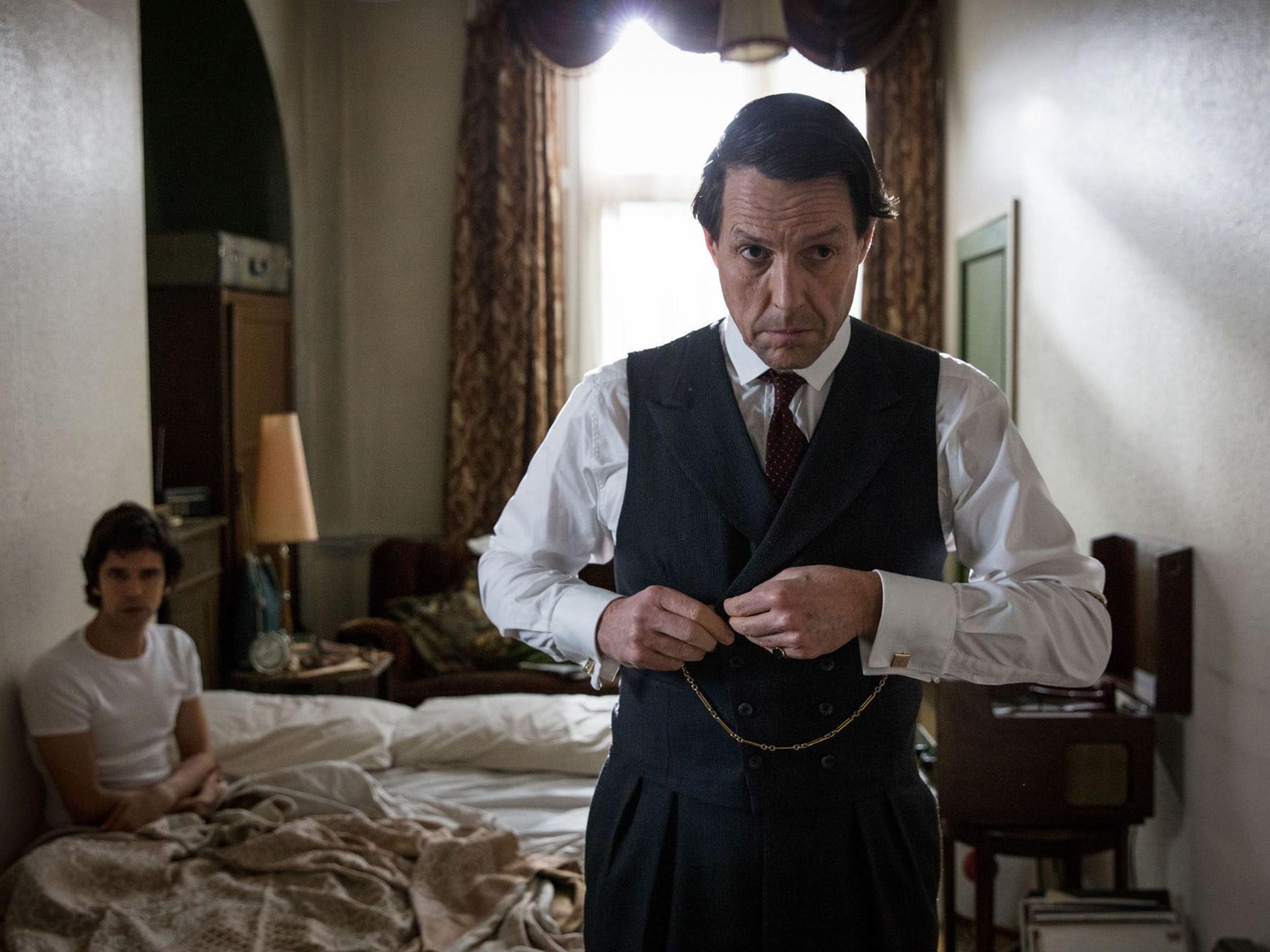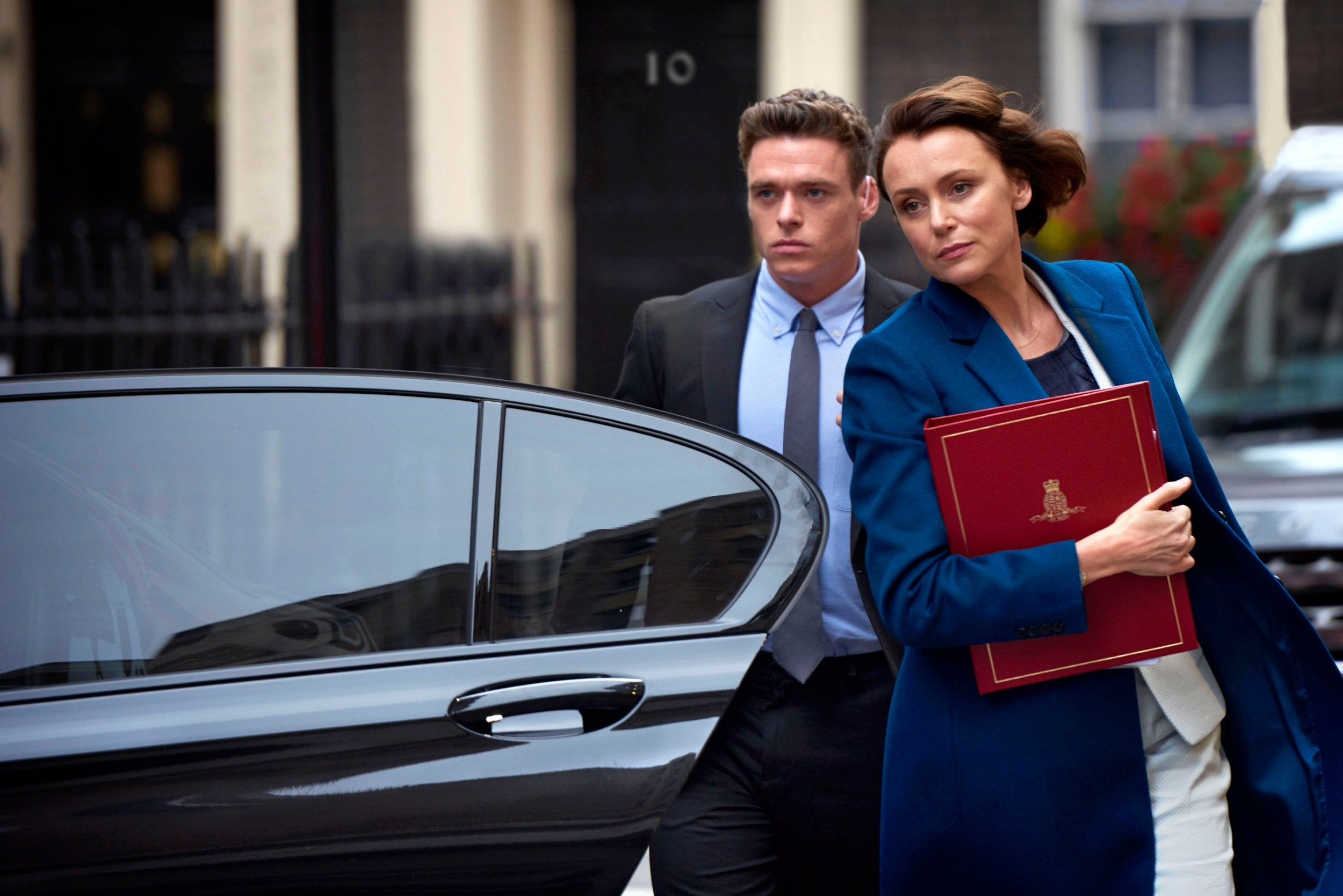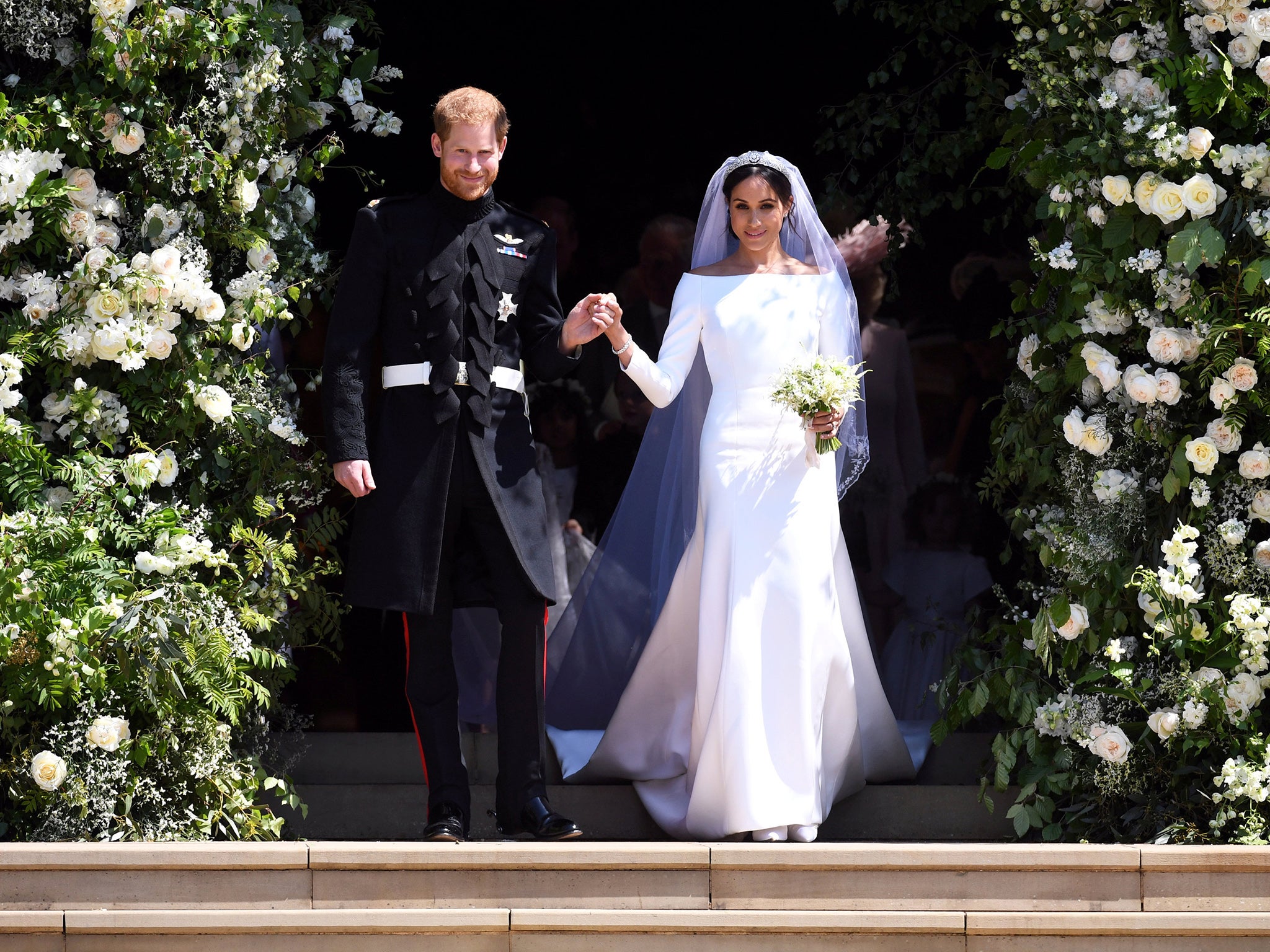Television will be revolutionised: this year saw TV more representative than ever
More reflective of society than it has ever been, British television is, says Sean O'Grady, going through its own evolution and producing some of its finest programmes


Your support helps us to tell the story
From reproductive rights to climate change to Big Tech, The Independent is on the ground when the story is developing. Whether it's investigating the financials of Elon Musk's pro-Trump PAC or producing our latest documentary, 'The A Word', which shines a light on the American women fighting for reproductive rights, we know how important it is to parse out the facts from the messaging.
At such a critical moment in US history, we need reporters on the ground. Your donation allows us to keep sending journalists to speak to both sides of the story.
The Independent is trusted by Americans across the entire political spectrum. And unlike many other quality news outlets, we choose not to lock Americans out of our reporting and analysis with paywalls. We believe quality journalism should be available to everyone, paid for by those who can afford it.
Your support makes all the difference.If television is some sort of mirror held up to the society from whence it springs, then 2018 was when the British developed an even deeper attraction for tales about spying, assassination, terrorism, conspiracies, preferably in combination.
In what was a bit of a revivalist year for the thriller genre, the BBC’s Bodyguard was the defining drama. Starring Keeley Hawes as home secretary Julia Montague and Richard Madden as the eponymous police protection officer, David Budd, it was unusual in not being offered immediately in “box set” format ready for binge viewing, but rather through the traditional rationed weekly instalments.
That would not by and of itself have been sufficient to secure its success, however, and the fine performances, taut writing, intriguing storylines and tight direction will no doubt ensure a fine crop of awards for those responsible. Bodyguard also broke an ancient TV convention by killing off the principal figure, Julia Montague, in the antepenultimate episode. That was smart, as it sparked a national debate about how the programme makers could reincarnate her after she has been blown to bits by a bomb. Only the ridiculously bad sex scenes let the show down, though they made Madden’s arse internationally famous for a while.
Bodyguard was followed in due course by an accomplished dramatisation of John Le Carre’s novel The Little Drummer Girl (BBC1). Like Bodyguard, some viewers found the shifts in pace, from near glacial plot development to sudden extreme violence, a bit tricky to deal with, but on the whole the production deserved the critical acclaim it achieved, with Michael Shannon’s Israeli spymaster Kurtz and newcomer Florence Pugh’s “drummer girl” Charlie delivering in the best nuanced style of the Le Carre canon.
Killing Eve (produced by BBC America) was a more outré variation on the theme, as you might expect from the keyboard of Phoebe Waller-Bridge (creator and lead in Fleabag). This was more gladiatorial combat, almost for its own sake, between the two protagonists, Eve Polastri, bored spy, (Sandra Oh) and bored assassin Villanelle (Jodie Comer). Much of the action took place inside their own deranged minds. Great fun.

Fact, and history, can yield some pretty incredible stories too, and none more so than the Thorpe affair, as explored A Very English Scandal (BBC1). In case you missed it – the original scandal or this new series – the leader of the Liberal Party, the right honourable Jeremy Thorpe MP wound up being arraigned at the Old Bailey on a charge of conspiracy to murder, with a number of others.
The charge was that he and a pretty motley gang wanted to kill a male model, Norman Scott, but in the event, the only casualty was the dog he was looking after, named Rinka. That fatality occurred on Bodmin Moor, the “murder weapon” was an antique, pre-First World War Mauser pistol, and there was a carpet wholesaler, a helicopter pilot and the then home secretary (another one) mixed up in the whole sorry saga. Thorpe, by the way, narrowly missed being appointed home secretary himself in 1974, in which case he would have been in charge of his own security service file.
In the event, Thorpe was acquitted but his reputation never recovered, and even by the time of his death a few years ago the best that could be said for it all was it has been mostly forgotten.
No longer. Hugh Grant’s portrayal of Thorpe captured much about this extraordinary man, and was a career-defining moment for Grant, proving, beyond all doubt, that he could move away from the stereotypical rom-com roles that had once defined him. Also excellent was Ben Whishaw as Scott (happily still with us) and Alex Jennings as the crooked, almost feral, Liberal MP and Thorpe crony Peter Bessel.
Less grand, but no less compelling was the story of Mrs Wilson (BBC1). Based on the real life of her own grandmother, Ruth Wilson relived the bigamy and deceptions of her grandfather Alex Wilson (Iain Glen), spy, thriller writer, adventurist and hospital kitchen porter. Married four times, simultaneously that is, with five sons scattered around, mostly unbeknownst to one another.
This three-parter was a sensitive portrayal of what can happen (and did) to multiple families when they are subjected to this form of extreme emotional fraud. By the end, because he died in 1963, we still didn’t know whether granddad Major Wilson was mad, bad or both, but it is strange that the security services refuse to cough up his personnel file, some 75 years on from his employment with them.

At around 4pm on 18 January Ant McPartlin drove his black Mini Cooper Countryman into two other cars on the Lower Richmond Road in south London. He was arrested for drink driving, convicted and the rest of the year was a dispiriting case study of the media and celebrity. This is hardly the place to go into it now, save to mention that his departure from the screens was complete and a deeply tragic affair, and rarely received the systematic treatment it deserved.
His TV partner Dec carried on with solo, and teamed up with Holly Willoughby for yet another series of I’m a Celebrity... Get Me Out of Here (ITV). The continuing success of this show – it still draws vast audiences and publicity with, frankly, some semi-obscure “celebs” – is testament to the British public's continuing fascination with celebrity, to the point where almost anyone who’s been on television qualifies as one, seemingly.
Like some creatures from outer space the inhabitants of Love Island seem to have preternaturally smooth, flawless skin, but be entirely free of any sense of irony. Maybe they arrived in pods and will one day take over our planet.
‘Twas always thus of course; it used to be gossip magazines devoted to music hall stars and Hollywood actors, but the variety of media today makes it a more pervasive phenomenon, this obsession with fame. Harry Redknapp was an entertaining winner and king of the jungle, for sure, but he frankly didn’t have much competition from the kids. Which may prove something.
For those unnerved by the arrival of mass celeb-driven hysteria I have bad news. The demise of Big Brother and its spin off Celebrity Big Brother (hit by a fatal controversy over the use of the N word) is unlikely to signal a turning point. After two decades or so, it was simply worn out, and so remote from any purpose it once had (debatable) as to have lost its sense of purpose.
Instead the unnatural and depilated Love Island grouse of programmes is proving a fresh focus for prurient attention. Like some creatures from outer space the inhabitants of Love Island seem to have preternaturally smooth, flawless skin, but be entirely free of any sense of irony. Maybe they arrived in pods and will one day take over our planet.
Maybe they already have.
The other thinly disguised excuses to get famous (and rich) quick – The Apprentice, Bake Off, and now the (highly improbable) mini hit Lego Masters – seem likely to continue for some time. Plus X Factor, and all that.
So Big Brother ground to an ignominious halt on Channel 5 in the end, but that station is busily re-inventing itself as the home of some quite extraordinary documentaries, looking at everything from Beefeaters to sex workers, and using the conventional methods of the documentary filmmaker. Almost quaint, in fact. I hope it works out for them: the shows are often as good as anything on the other channels. Good for Channel 5, anyhow.
BBC Three is the other great unexpected success story, having carved out an impressive niche as an incubator of formidable comedy talent – much of it still in evidence in 2018. People Just Do Nothing gave us a finely crafted, as ever, final series, but its mockumentary stablemate, This Country is due for another series, and I have high hopes indeed for Famalam. One mystery, though, is the non-appearance of Alan Partridge, whose new series was heralded some time ago. Some nerves about Steve Coogan’s Partridge being mocked for being pro-Brexit? I wonder.
Elsewhere, the BBC gave us the unusual There She Goes, which centred on a girl with a rare and severe learning disability. Jessica Hynes, David Tennant as parents and Miley Locke, who plays the daughter, Rosie, admirably fulfilled Shaun Pye’s honest and funny scripting (in turn related to his personal experiences).
On the whole, it was good year for Doctor Who and for women in television. Jodie Whittaker’s debut as the first female doctor attracted the best launch audience for a new series of the sci-fi favourite in a decade – more than 10 million in total.
There was plenty of rage about political correctness and the like on Twitter, and in the comments section of our popular mid-market tabloid press (the nearest thing we have today to Bedlam), but the anger was certainly not reflected in those viewing figures or the generous critical reviews for the show – which attracted more than the usual share of scrutiny from the Whovians. In its way, too, it was a small victory for old media – Doctor Who does date back to 1963, after all – demonstrating there’s plenty of room left in older shows, provided they get the right attention.

I’m not sure what Jodie Whittaker’s salary is, and I’m not that bothered to be frank, but the BBC was forced to take steps to correct the gender pay gap, and, by the year end, had also replaced David Dimbleby as chair of Question Time with Fiona Bruce (salary unknown). She, like Jodie, will do a disproportionate amount of good for gender equality – television matters in setting an example and leading (as well as reflecting) society.
In fact, look around a little and there was quite a lot of feministic stuff going on. There was that female home secretary/subordinate male copper dynamic in Bodyguard; Derry Girls (Channel 4) back for a second run, making the best of the Troubles; and the arrival of Maureen Lipman in Coronation Street (ITV) as Evelyn Plummer. The long-term trend on Corrie towards younger players and grittier storylines (including, this year, male rape) has admittedly kept the sap alive and relevant (at the age of 58, after all), but it does need to keep hold of its wider appeal and some of the humour and character that were also part of the mix. No better candidate to add that essential quality than Lipman who, like June Brown (91) over on EastEnders, deserves to be respected and cherished.
There were other highlights too, though more televised news and sports events than actual TV events, if you see what I mean. The marriage of Harry and Meghan (all channels) attracted a global audience of approaching 2 billion – unbelievably – while England’s heroic performances in the World Cup were also memorable moments. Less happily, poor SuRie suffered that yobbish intervention at the Eurovision Song Contest (BBC). It was a catchy song actually, and better than most the UK have put forward.
This year saw Sky TV go to Comcast, Channel 4 relocate to Leeds and, less visibly but no less momentously, around a half of the British population watch material from Netflix, Amazon and other online suppliers who are gradually eroding and fragmenting previous forms of viewing.
Like the slow but inexorable decline of print media, television too is now going through its own evolution, but there is plainly still a demand for quality productions and compelling material, be it drama, wildlife docs (and David Attenborough is still out there doing his bit at 92), comedy or, indeed, reality TV and celeb based shows. British television is, in fact, more reflective of society – women, people with disabilities, BAME communities – than it has ever been; and it is producing some of its finest programmes. That at least is one cause for optimism as we face another year of television news dominated by Brexit...
Join our commenting forum
Join thought-provoking conversations, follow other Independent readers and see their replies
Comments